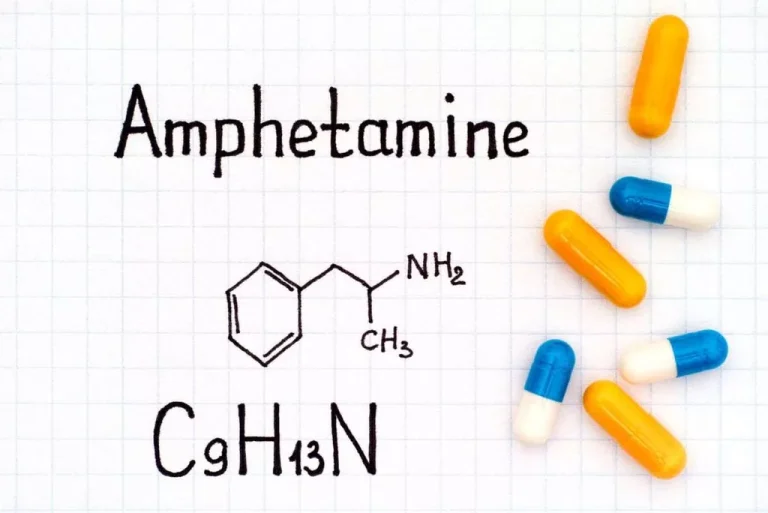
Suppressing this stimulant results in a similar type of physiological slowdown. Alcoholism doesn’t only take its toll on the alcoholic — it affects everyone around him or her, especially family and friends. Research shows that https://ecosoberhouse.com/ more than 40 percent of Americans have been exposed to alcoholism in the family. Children of alcoholics are more likely to be abused and to experience anxiety, depression and behavioral problems than children of non-alcoholics.
Find Support for Alcoholism at The Recovery Village Columbus
Some studies show that genes can account for as much as 50 percent of a person’s risk for addiction, although the degree of genetic influence shifts in importance over time. For example, environmental factors such as family and social relationships are more strongly tied to use of alcohol and nicotine in adolescence than later in life. Nevertheless, there is no single gene for addiction nor even a group of genes. Healthcare providers define AUD as a brain disorder that affects your ability to regulate or stop drinking alcohol despite adverse impacts on your mental and physical health and professional or personal life. A common initial treatment option for someone with an alcohol addiction is an outpatient or inpatient rehabilitation program. It can help someone handle withdrawal symptoms and emotional challenges.

How Does Addiction Develop in the Brain?
- It leads to turmoil in the home, resentful relationships, and even emotional or physical health problems.
- About 15 million American adults and 400,000 adolescents suffer from alcohol use disorder, according to the National Institute on Alcohol Abuse and Alcoholism.
- Alcoholism, referred to as alcohol use disorder, occurs when someone drinks so much that their body eventually becomes dependent on or addicted to alcohol.
- But many people in recovery show improvements in memory and concentration, even within the first month of sobriety.
- Once stabilized, the goal is to transition from detox, to treatment, to maintenance (practicing sober living by changing your life), to transcendence—the final step in the path to recovery.
- Biology, psychology, and social and cultural elements all play a role in the enormously complex causal bouquet that results in addiction, and different theories weight the elements differently.
- People working high-stress jobs or with stressful home situations are more likely to develop alcoholism.
We pride ourselves on carefully selecting men and women who are not only thoroughly informed and knowledgeable about addiction, but also those who have personally experienced the trials and blessings of recovery themselves. Our team is comprised of doctors, clinicians, therapists, mentors, and recovery coaches with decades of experience in the field. Carolina Center for Recovery is lucky to have some of the most qualified and experienced addiction specialists in the country.
- Alcoholics Anonymous (AA) or other 12-step programs can offer that social support.
- Once detox is complete, alcoholics can begin tackling problematic behaviors related to their addiction and learn how to live sober again.
- If a person feels the compulsion to drink outside of social settings, this can indicate that they are starting to develop alcoholic behavior and may need an intervention.
- But for other people, one drink becomes two drinks, which becomes four drinks — they are unable to stop drinking.
Long-Term Health Problems Associated with Chronic Heavy Drinking
It can involve withdrawal symptoms, disruption of daily tasks, discord in relationships, and risky decisions that place oneself or others in danger. About 15 million American adults and 400,000 adolescents suffer from alcohol use disorder, according to the National Institute on Alcohol Abuse and Alcoholism. But treatment and support are available to help those suffering begin to heal. In the beginning stages of alcoholism, drinking escalates and the individual develops an increased tolerance for alcohol.

Increased Drinking Behaviors Over Time
As a supporter of someone who suffers from a drinking problem, it’s important to understand that the same factors that increase the risk of becoming an alcoholic are the same factors that increase the risk of relapse. Stress, untreated mental health conditions, trauma, or a toxic environment are all things that might trigger a relapse. That’s why it’s so important to find a comprehensive alcohol treatment program that can take a multifaceted approach to addiction treatment.
To a very large degree, brain hacks become appealing when there are restricted opportunities for meaning and for pleasure other than the response to drugs. Neuroscience research supports the idea that addiction is a habit that becomes deeply entrenched and self-perpetuating, rewiring the circuitry of the brain as it is repeated. The repetition of a highly pleasurable experience—drugs, gambling—alters neurons; they adjust their wiring to become increasingly efficient at the experience. As drug use stops, engaging in other rewarding activities rewires the brain to find interest and pleasure in non-drug pursuits.
The mental and physical health of alcoholics are rapidly deteriorating at this stage, and unless they seek alcohol rehab, they may drink themselves to death. Just as recovery from addiction requires focusing on rewarding activities other than drug use, so does prevention. When healthcare providers screen for this condition, they look at drinking behavior patterns within the last year to determine a diagnosis. They use a set of 11 criteria established by the Diagnostic and Statistical Manual of Mental Disorders, Fifth Edition (DSM-5) to assess alcohol use severity. There are effective ways to treat this disease and steps you can take to help a loved one enter recovery. This article discusses alcohol use disorder symptoms and strategies for treatment and intervention.
Related Content
Making such a significant life change can cause emotional turmoil, including guilt for past behaviors or burdening others. If you’re worried that someone you know has an alcohol addiction, it’s best to approach them in a supportive way. This could push them away and make why do people become alcoholics them more resistant to your help. One size does not fit all and a treatment approach that may work for one person may not work for another. Treatment can be outpatient and/or inpatient and be provided by specialty programs, therapists, and health care providers.

